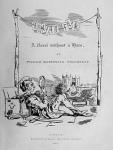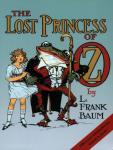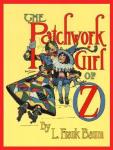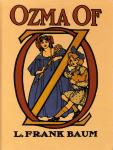Vanity Fair: A Novel without a Hero

Vanity Fair: A Novel without a Hero is a novel by English author William Makepeace Thackeray, first published in 1847–48, satirizing society in early 19th-century Britain. The book's title comes from John Bunyan's allegorical story The Pilgrim's Progress, first published in 1678 and still widely read at the time of Thackeray's novel. "Vanity Fair" refers to a stop along the pilgrim's progress: a never-ending fair held in a town called Vanity, which is meant to represent man's sinful attachment to worldly things.The story opens with Miss Pinkerton's Academy for Young Ladies, where Becky Sharp and Amelia Sedley have just completed their studies and are preparing to depart for Amelia's house in Russell Square. Becky is portrayed as a strong-willed and cunning young woman determined to make her way in society, and Amelia Sedley as a good-natured, lovable though simple-minded young girl.At Russell Square, Miss Sharp is introduced to the dashing and self-obsessed Captain George Osborne (to whom Amelia has been betrothed from a very young age) and to Amelia's brother Joseph Sedley, a clumsy and vainglorious/boastful but rich civil servant fresh from the East India Company. Hoping to marry Sedley, Becky entices him, but she fails because of warnings from Captain Osborne, Sedley's own native shyness, and his embarrassment over some foolish drunken behaviour of his that Becky had seen.Becky Sharp says farewell to Sedley's family and enters the service of the crude and profligate baronet Sir Pitt Crawley, who has engaged her as a governess to his daughters. Her behaviour at Sir Pitt's house gains his favour, and after the premature death of his second wife, he proposes marriage to her. Then he finds she is already secretly married to his second son, Rawdon Crawley.Sir Pitt's elder half sister, the spinster Miss Crawley, is very rich, having inherited her mother's fortune of £70,000. How she will bequeath her great wealth is a source of constant conflict between the branches of the Crawley family who vie shamelessly for her affections; initially her favourite is Sir Pitt's younger son, Captain Rawdon Crawley. For some time, Becky acts as Miss Crawley's companion, supplanting the loyal Miss Briggs in an attempt to establish herself in favour before breaking the news of her elopement with Miss Crawley's nephew. However, the misalliance so enrages Miss Crawley that she disinherits her nephew in favour of his pompous and pedantic elder brother, who also bears the name Pitt Crawley. The married couple constantly attempts to reconcile with Miss Crawley, and she relents a little, but she will only see her nephew and refuses to change her will.While Becky Sharp is rising in the world, Amelia's father, John Sedley, is bankrupted. The Sedleys and Osbornes were once close allies, but the relationship between the two families disintegrates after the Sedleys are financially ruined, and the marriage of Amelia and George is forbidden. George ultimately decides to marry Amelia against his father's will, pressured by his friend Dobbin, and George is consequently disinherited. While these personal events take place, the Napoleonic Wars have been ramping up. George Osborne and William Dobbin are suddenly deployed to Brussels, but not before an encounter with Becky and Captain Crawley at Brighton. The holiday is interrupted by orders to march to Brussels. Already, the newly wedded Osborne is growing tired of Amelia, and he becomes increasingly attracted to Becky who encourages his advances.At a ball in Brussels (based on the Duchess of Richmond's famous ball on the eve of the Battle of Waterloo) George gives Becky a note inviting her to run away with him. He regrets this shortly afterwards and reconciles with Amelia, who has been deeply hurt by his attentions towards her former friend. The morning after their reconciliation, he is sent to Waterloo with Captain Crawley and Dobbin, leaving Amelia distraught. Becky, on the other hand, is virtually indifferent to her husband's departure. She tries to console Amelia, but Amelia responds angrily, disgusted by Becky's flirtatious behaviour with George and her lack of concern about Captain Crawley. Becky resents this snub and a rift develops between the two women that lasts for years. Becky is not very concerned for the outcome of the war, either; should Napoleon win, she plans to become the mistress of one of his marshals. Meanwhile she makes a profit selling her carriage and horses at inflated prices to the panicked Joseph Sedly, seeking to flee the city, where the Belgian population is openly pro-Napoleonic.Captain Crawley survives, but George dies in the battle. Amelia bears him a posthumous son, who is also named George. She returns to live in genteel poverty with her parents. Meanwhile, since the death of George, Dobbin, who is young George's godfather, gradually begins to express his love for the widowed Amelia by small kindnesses toward her and her son. She is too much in love with George's memory to return Dobbin's affections. Saddened, he goes to India for many years. Dobbin's infatuation with Amelia is a theme which unifies the novel and one which many have compared to Thackeray's unrequited love for a friend's wife (Jane Brookfield).Meanwhile, Becky also has a son, also named after his father, but unlike Amelia, who dotes on and even spoils her child, Becky is a cold, distant mother. She continues her ascent first in post-war Paris and then in London where she is patronised by the great Marquis of Steyne, who covertly subsidises her and introduces her to London society. Her success is unstoppable despite her humble origins, and she is eventually presented at court to the Prince Regent himself.Becky and Rawdon appear to be financially successful, but their wealth and high standard of living are mostly smoke and mirrors. Rawdon gambles heavily and earns money as a billiards shark. The book also suggests he cheats at cards. Becky accepts trinkets and money from her many admirers and sells some for cash. She also borrows heavily from the people around her and seldom pays bills. The couple lives mostly on credit, and while Rawdon seems to be too dim-witted to be aware of the effect of his borrowing on the people around him, Becky is fully aware that her heavy borrowing and her failure to pay bills bankrupts at least two innocent people: her servant, Briggs, whose life savings Becky borrows and fritters away, and her landlord Raggles, who was formerly a butler to the Crawley family and who invested his life savings in the townhouse that Becky and Rawdon rent (and fail to pay for). She also cheats innkeepers, milliners, dressmakers, grocers, and others who do business on credit. She and Rawdon obtain credit by tricking everyone around them into believing they are receiving money from others. Sometimes, Becky and Rawdon buy time from their creditors by suggesting Rawdon received money in Miss Crawley's will or are being paid a stipend by Sir Pitt. Ultimately Becky is suspected of carrying on an extramarital affair with the Marquis of Steyne, apparently encouraged by Rawdon to prostitute herself in exchange for money and promotion.At the summit of her success, Becky's pecuniary relationship with the rich and powerful Marquis of Steyne is discovered after Rawdon is arrested for debt. Rawdon's brother's wife, Lady Jane, bails him out and Rawdon surprises Becky and Steyne in a compromising moment. Rawdon leaves his wife and through the offices of the Marquis of Steyne is made Governor of Coventry Island to get him out of the way, but Rawdon challenges the elderly marquis to a duel. Becky, having lost both husband and credibility, is warned by Steyne to leave the United Kingdom and she wanders the continent. Rawdon and Becky's son is left in the care of Pitt Crawley and Lady Jane. However, wherever Becky goes, she is followed by the shadow of the Marquis of Steyne. No sooner does she establish herself in polite society than someone turns up who knows her disreputable history and spreads rumours; Steyne himself hounds her out of Rome.As Amelia's adored son George grows up, his grandfather relents and takes him from the impoverished Amelia, who knows the rich and bitter old man will give him a much better start in life than she or her family could ever manage. After twelve years abroad, both Joseph Sedley and Dobbin return to the UK. Dobbin professes his unchanged love to Amelia, but although Amelia is affectionate she tells him she cannot forget the memory of her dead husband. Dobbin also becomes close to young George, and his kind, firm manner is a good influence on the spoiled child.While in England, Dobbin mediates a reconciliation between Amelia and her father-in-law. The death of Amelia's father prevents their meeting, but following Osborne's death soon after, it is revealed that he had amended his will and bequeathed young George half his large fortune and Amelia a generous annuity. The rest is divided between his daughters, Miss Osborne, and Mrs. Bullock, who begrudges Amelia and her son the decrease in her annuity.After the death of old Mr. Osborne, Amelia, Joseph, George and Dobbin go on a trip to Germany, where they encounter the destitute Becky. She meets the young George at a card table and then enchants Jos Sedley all over again. Becky has unfortunately deteriorated as a character. She is drinking heavily, has lost her singing voice and much of her looks and spends time with card sharps and con artists. The book suggests that Becky has been involved in activities even more shady than her usual con games, but does not go into details.Following Jos's entreaties, Amelia agrees to a reconciliation when she hears that Becky's ties with her son have been severed, much to Dobbin's disapproval. Dobbin quarrels with Amelia and finally realizes that he is wasting his love on a woman too shallow to return it. However, Becky, in a moment of conscience, shows Amelia the note that Amelia's dead husband, George, had given her, asking her to run away with him. This destroys Amelia's idealized image of George, but not before Amelia has sent a note to Dobbin professing her love.Becky resumes her seduction of Jos and gains control over him. He eventually dies of a suspicious ailment after signing a portion of his money to Becky as life insurance. In the original illustrations, which were done by Thackeray, Becky is shown behind a curtain with a vial in her hand; the picture is labelled "Becky's second appearance in the character of Clytemnestra" (she had played Clytemnestra during charades at a party earlier in the book). Jos' death appears to have made her fortune.By a twist of fate Rawdon dies weeks before his older brother, whose son has already died; the baronetcy descends to Rawdon's son. Had he outlived his brother by even a day he would have become Sir Rawdon Crawley and Becky would have become Lady Crawley, a title she uses anyway in later life. The reader is informed at the end of the novel that although Dobbin married Amelia, and although he always treated her with great kindness, he never fully regained the love that he once had for her. There is also a final appearance for Becky, as cocky as ever, selling trinkets at a fair in aid of various charitable causes. She is now living well again, as her son, the new baronet, has agreed to support her financially (in spite of her past neglect and indifference towards him); however, he declines any further relationship or communication.
Contents
- Pefore The Curtain
- Chapter 1 - Chiswick Mall
- Chapter 2 - In Which Miss Sharp And Miss Sedley Prepare To Open The Campaign
- Chapter 3 - Rebecca Is In Presence Of The Enemy
- Chapter 4 - The Green Silk Purse
- Chapter 5 - Dobbin Of Ours
- Chapter 6 - Vauxhall
- Chapter 7 - Crawley Of Queen's Crawley
- Chapter 8 - Private And Confidential
- Chapter 9 - Family Portraits







